Stormwater Utility Fee
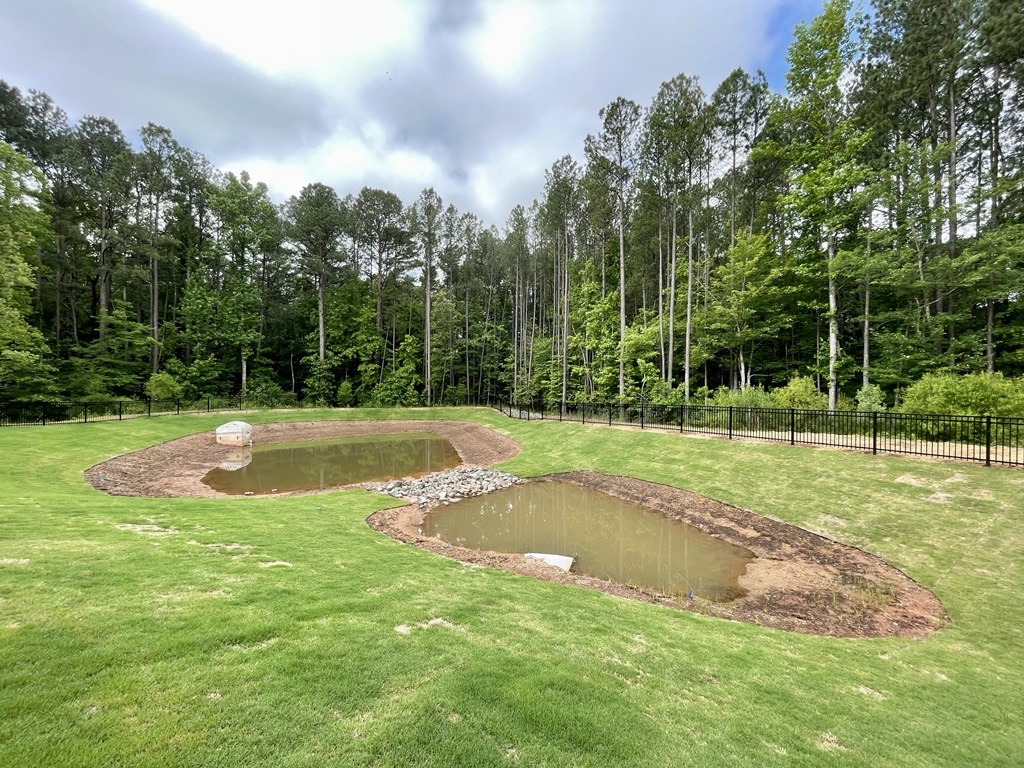
The Durham County Stormwater and Erosion Control Division is tasked with finding ways to manage the ongoing challenge of stormwater impacts to the unincorporated areas of the County and meet state requirements (Jordan Lake and Falls Lake Rules) to reduce pollutants, especially nutrients like phosphorous and nitrogen, in our waterways. As the County continues to grow, the need to address increasing stormwater runoff and the pollutants it carries is a necessity. Nutrient management for both existing and new development is mandated by the North Carolina Department of Environmental Quality.
In order to pay for the projects that will be needed to address nutrient loading from existing development and meet state stormwater requirements, Durham County has implemented a Stormwater Utility Fee, to go into effect in August 2020. It is a fair, equitable, and stable way for Durham County to collect revenue to help fund the activities required to meet the nutrient rules. It is estimated that it may cost Durham County more than $70 million dollars over the next 20 years to reduce pollutants in our waterways to meet the state requirements.
The Stormwater Utility Fee is charged to all properties in the unincorporated areas of Durham County with development. The fee is based on the amount of impervious surface area on a property across County property owners in a way that reflects each property’s contribution to stormwater runoff. It is divided into residential and non-residential charges, with residential properties paying one of three flat rate tiers. Non-residential properties pay per the total amount of impervious area with no maximum charge. Revenues from the Stormwater Utility Fee fund compliance actions required by the Neuse River, Falls Lake, and Jordan Lake nutrient management strategies.
If you wish to appeal your stormwater utility fee charge, please fill out the Appeal Form and email to reaves@dconc.gov.
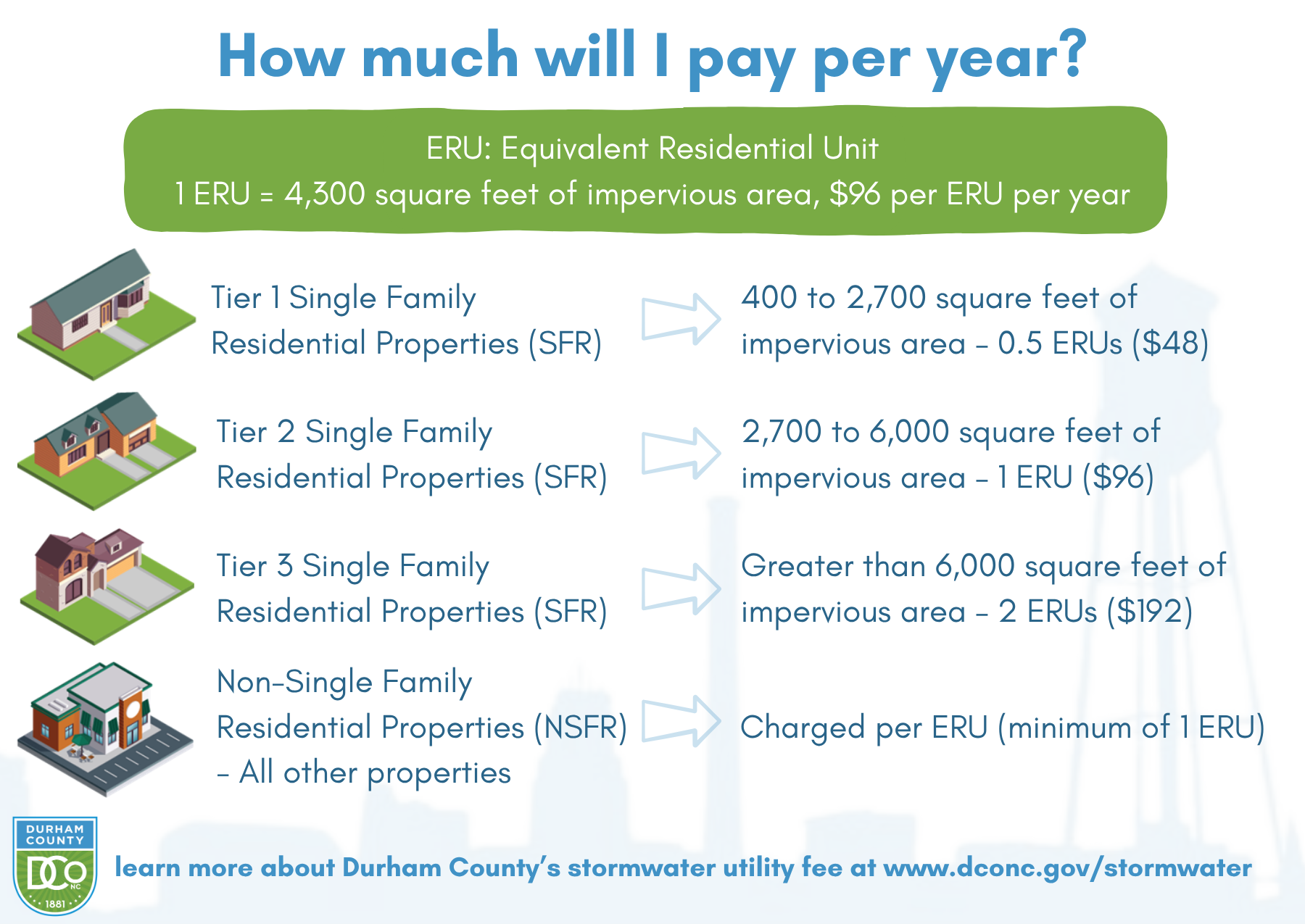
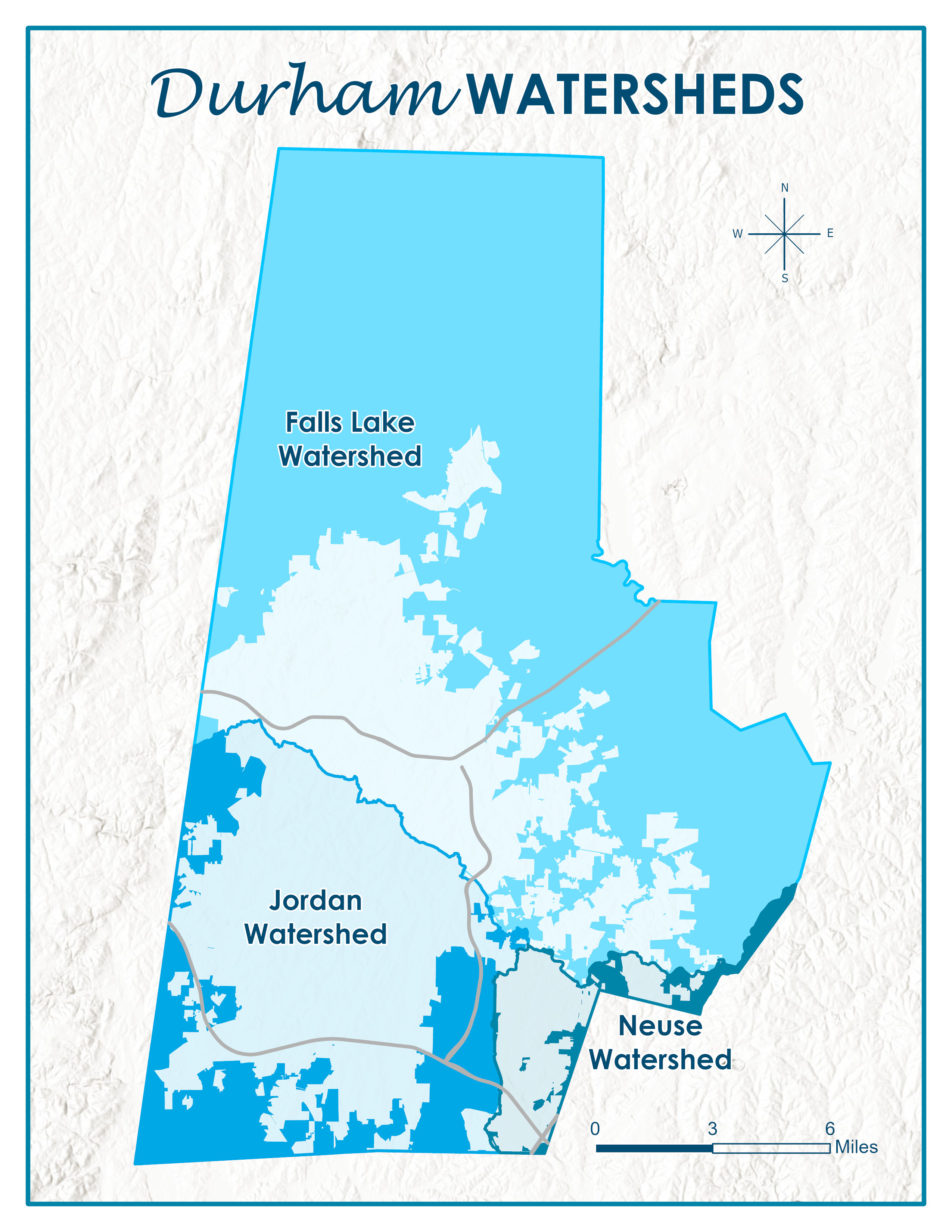 Maps, tabular data, and spatial information presented are developed from public records. While efforts have been made to use the most current and accurate public record data, no warranties as to the accuracy of the data provided are being made by the City of Durham, the County of Durham, and the mapping and software companies involved. Users of this content should consult public information sources to verify the accuracy of the data provided.
Maps, tabular data, and spatial information presented are developed from public records. While efforts have been made to use the most current and accurate public record data, no warranties as to the accuracy of the data provided are being made by the City of Durham, the County of Durham, and the mapping and software companies involved. Users of this content should consult public information sources to verify the accuracy of the data provided.
Who Will Pay the Fee?
All property owners in Durham County, OUTSIDE of City of Durham limits, who have a property with impervious surface (hard surfaces such as driveway, sidewalk, rooftop) will have the fee added to their property tax bill. All developed parcels, including residential, commercial, industrial, education and agriculture, will be charged. Properties that might be tax-exempt for other purposes (churches, schools, government properties, etc.) will also be billed the stormwater utility fee.
Residential Properties
Residential properties will be billed using a three-tier system. Determining which tier a property fits into is based on the amount of impervious surface on the lot. The tiers were statistically developed based on the number of properties analyzed and the amount of impervious surface calculated. This is a popular method used by other cities and counties nationwide for calculating fair and equitable stormwater utility fees. Using this rate structure, the majority of average-size homes fall under the middle tier, while residential lots with a very high amount of impervious, such as a longer driveway or larger rooftop, patios, or additional structures, will fall under Tier 3, and pay a higher rate. More impervious surface has a larger impact on water quality, and therefore the rates have been structured to address this. Properties with a very small amount of impervious surface will pay the lowest rate, within Tier 1.
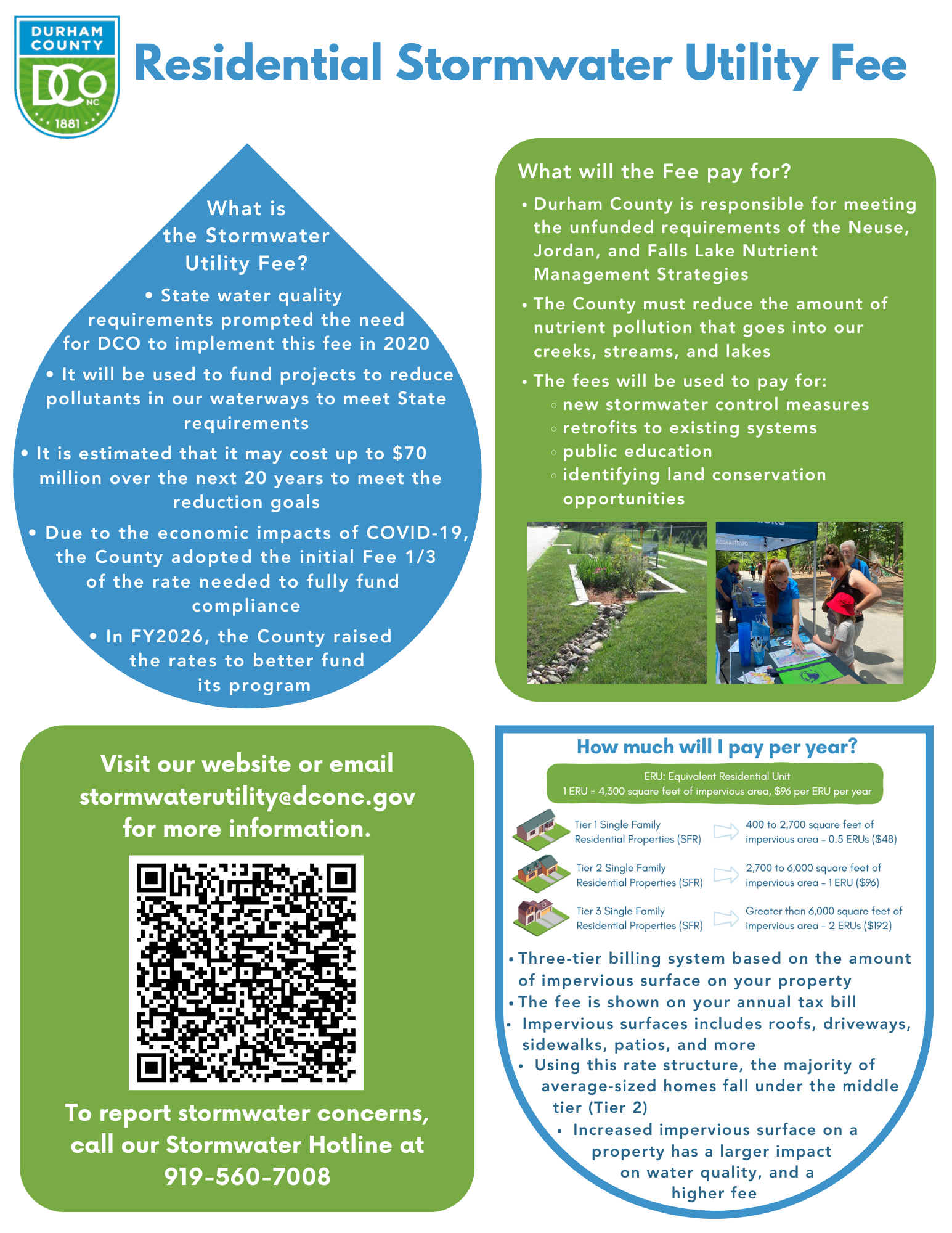
Agricultural Properties
Agricultural properties that have a residence on them will be charged one of the tiered residential rates. If a property does not have a single-family residence, it will be charged per ERU, based off of the exact amount of impervious surface located on the property.
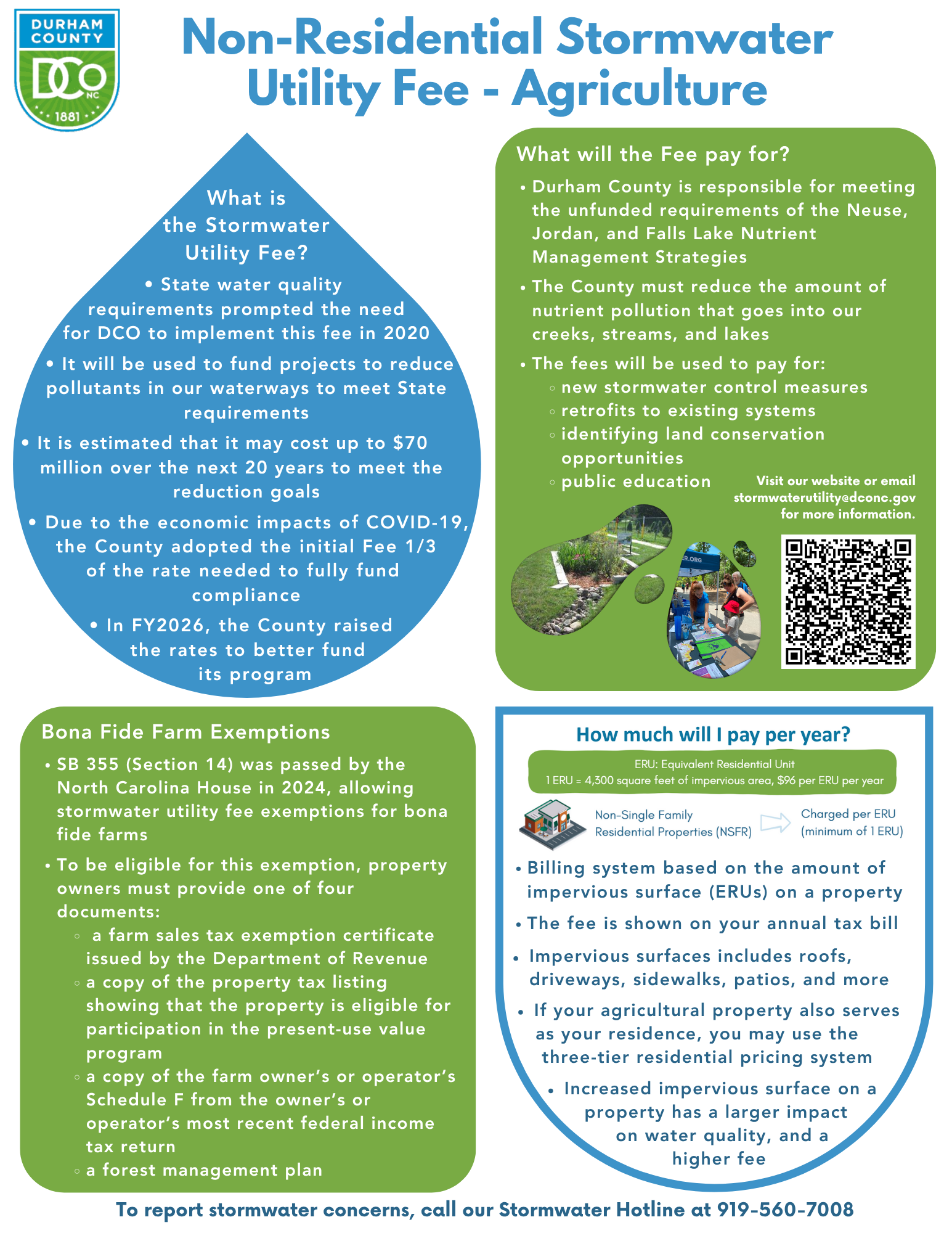
Non-Residential Properties
Properties that are non-single family residential, such as commercial, institutional, or industrial, will be charged per ERU. The impervious area has been calculated, and these properties will be charged $80 per ERU, annually.
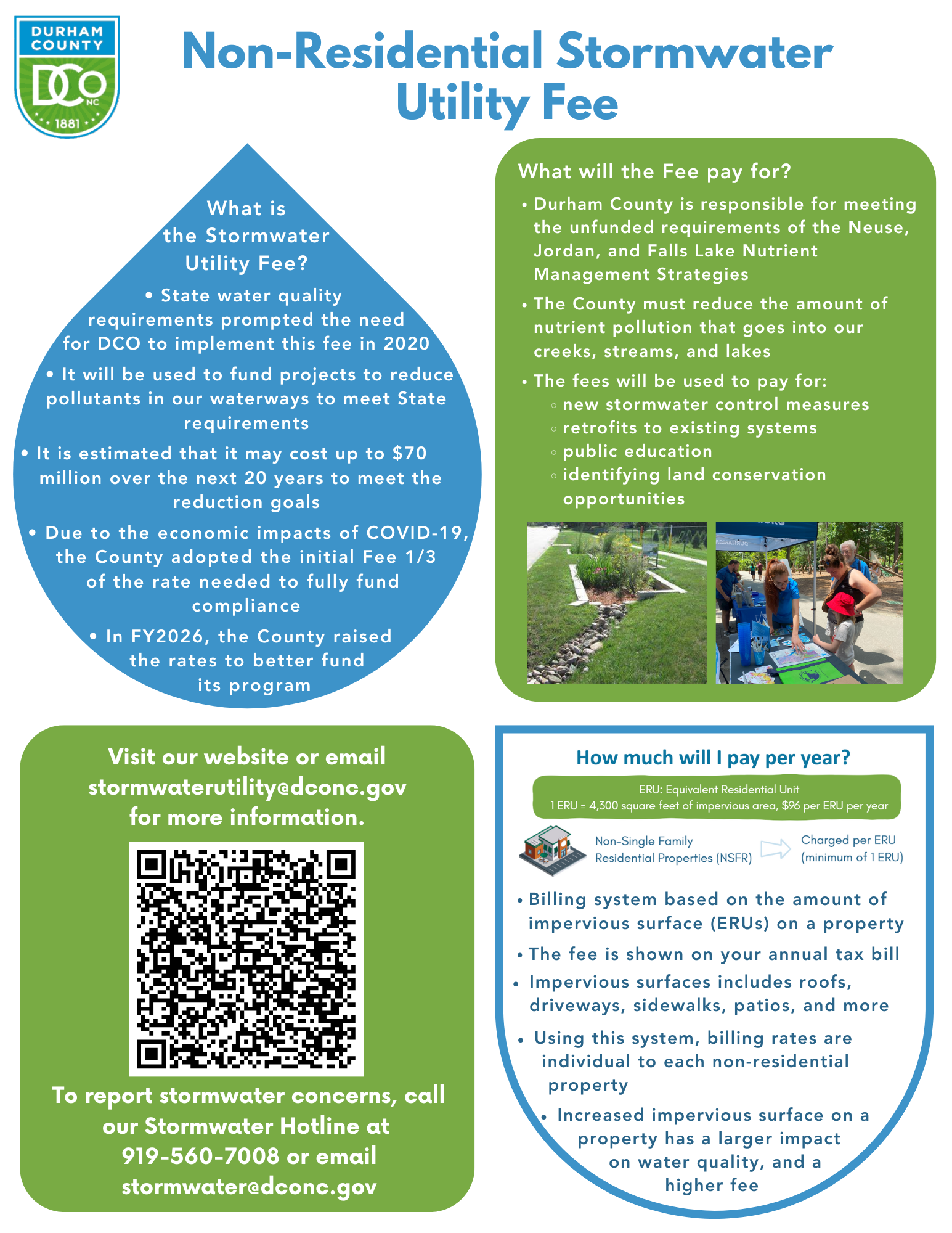
How are Fees Used?
The fees will be used to pay for new stormwater control measures, retrofits to existing systems, public education, identifying land conservation opportunities and assisting landowners with implementing measures that will reduce stormwater runoff. They will fund the compliance measures of the State's Nutrient Management Strategies and protect Durham County’s waterways.
For Additional Information or Questions, Email Us!
*Updated July 2025
For Additional Information or Questions, email us at stormwaterutility@dconc.gov.


